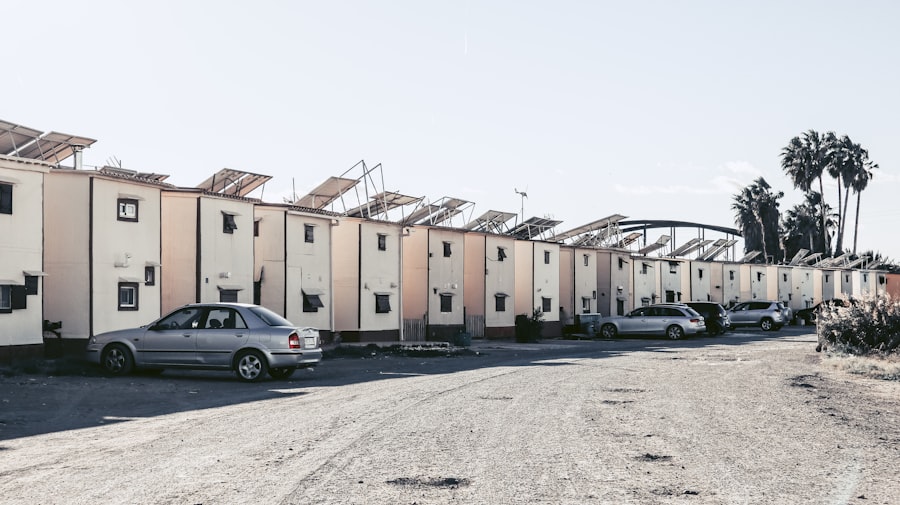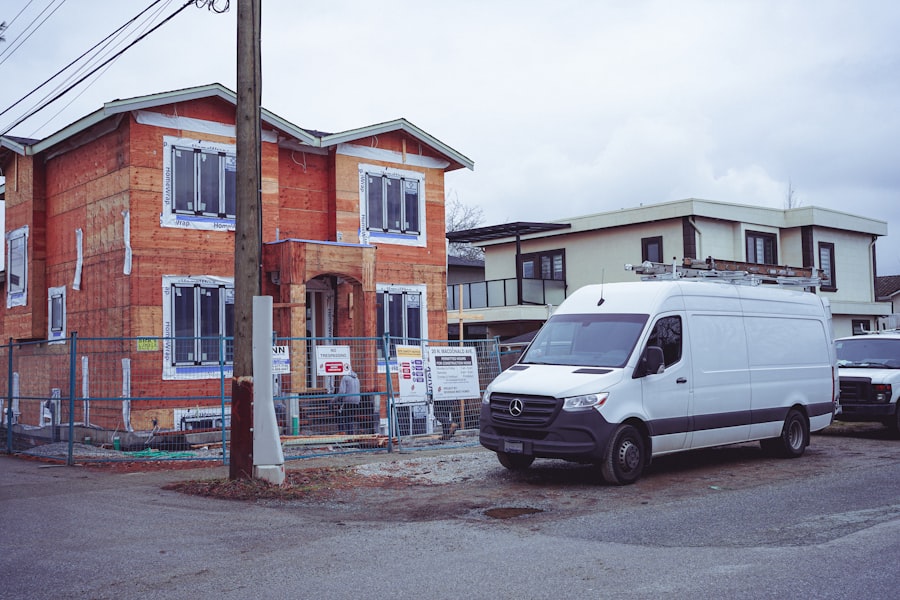Purchasing a used mobile home can be an attractive option for many individuals and families seeking affordable housing solutions. One of the most significant benefits is the cost savings associated with buying a pre-owned unit. Used mobile homes typically come at a fraction of the price of new models, allowing buyers to invest their savings in other areas, such as renovations or land acquisition.
This affordability makes mobile homes an appealing choice for first-time homebuyers, retirees looking to downsize, or anyone seeking a more economical living arrangement. In addition to the lower purchase price, used mobile homes often come with established communities and amenities. Many used mobile homes are located in parks that offer shared facilities such as swimming pools, clubhouses, and recreational areas.
This sense of community can be particularly beneficial for families and retirees who value social interaction and support. Furthermore, buying a used mobile home can also mean less depreciation compared to new models, which tend to lose value quickly after purchase. This stability can provide a sense of security for buyers who are concerned about their investment.
Key Takeaways
- Buying a used mobile home can be more affordable than purchasing a new one, saving you money in the long run.
- Affordable used mobile homes can be found through online listings, real estate agents, and mobile home parks.
- Financing options for purchasing a used mobile home include personal loans, chattel mortgages, and FHA loans.
- Before purchasing a used mobile home, it’s important to inspect the structure, plumbing, electrical systems, and roofing for any potential issues.
- Moving a used mobile home involves obtaining permits, hiring a professional moving company, and preparing the new site for installation.
Finding Affordable Used Mobile Homes for Sale
Locating affordable used mobile homes requires a strategic approach and an understanding of the market. One effective method is to explore online listings on platforms dedicated to real estate, such as Zillow, Realtor.com, or specialized mobile home websites. These platforms often allow users to filter searches based on price, location, and specific features, making it easier to find a home that fits both budget and lifestyle needs.
Additionally, local classifieds and community bulletin boards can yield hidden gems that may not be listed on larger websites. Networking within local communities can also be invaluable when searching for used mobile homes. Engaging with real estate agents who specialize in mobile homes can provide insights into upcoming listings or properties that may not yet be on the market.
Attending local real estate expos or community events can also connect potential buyers with sellers directly. Furthermore, exploring mobile home parks in person can reveal opportunities that might not be advertised online, allowing buyers to assess the community and its amenities firsthand.
Financing Options for Purchasing a Used Mobile Home

Financing a used mobile home can differ significantly from traditional home loans, primarily due to the classification of mobile homes as personal property rather than real estate in some cases. Buyers should explore various financing options available to them, including personal loans, chattel loans, and even traditional mortgages if the mobile home is affixed to land owned by the buyer. Chattel loans are specifically designed for mobile homes and can offer competitive interest rates and terms tailored to the unique nature of these properties.
Another option is to consider seller financing, where the current owner of the mobile home provides financing directly to the buyer. This arrangement can be beneficial for those who may not qualify for traditional loans due to credit issues or lack of a substantial down payment. Additionally, some government programs may assist first-time buyers or those purchasing homes in designated areas.
Researching these options thoroughly can help buyers secure favorable financing terms that align with their financial situation.
Inspecting a Used Mobile Home Before Purchase
| Aspect | Metrics |
|---|---|
| Exterior | Roof condition, siding condition, foundation stability |
| Interior | Plumbing, electrical, HVAC systems, flooring condition |
| Structural | Wall integrity, ceiling integrity, window and door functionality |
| Appliances | Age and condition of refrigerator, stove, washer, dryer |
| Utilities | Water pressure, electrical outlets, heating and cooling efficiency |
Before finalizing the purchase of a used mobile home, conducting a thorough inspection is crucial to ensure that the investment is sound. Buyers should consider hiring a professional inspector who specializes in mobile homes to assess the structure’s condition comprehensively. Key areas to evaluate include the roof, plumbing, electrical systems, and foundation.
Inspectors can identify potential issues that may not be immediately visible, such as water damage or structural weaknesses. In addition to professional inspections, prospective buyers should conduct their own walkthroughs to assess the home’s overall condition. This includes checking for signs of wear and tear, such as cracks in walls or ceilings, water stains, and the functionality of appliances.
It’s also essential to inquire about the age of major systems like heating and cooling units, as older systems may require replacement soon after purchase. By being diligent in this process, buyers can avoid unexpected repair costs and ensure they are making a wise investment.
The Process of Moving a Used Mobile Home
Moving a used mobile home is a complex process that requires careful planning and execution. The first step involves determining whether the home will be moved to a new location or remain in its current park. If relocation is necessary, buyers must consider logistics such as transportation costs, permits required by local authorities, and hiring professional movers who specialize in mobile homes.
These professionals have the expertise and equipment necessary to safely transport the home without causing damage. Additionally, it’s essential to prepare the new site for the mobile home’s arrival. This preparation may include leveling the ground, ensuring proper utility connections are available, and complying with zoning regulations.
Buyers should also communicate with local authorities to understand any specific requirements related to moving a mobile home into their desired area. By addressing these logistical challenges upfront, buyers can facilitate a smoother transition into their new living space.
Renovating and Customizing Your Used Mobile Home

One of the most appealing aspects of purchasing a used mobile home is the opportunity for renovation and customization. Buyers often find that older models provide a blank canvas for personal expression and creativity. Simple upgrades such as fresh paint, new flooring, or modern fixtures can significantly enhance the aesthetic appeal of the home without breaking the bank.
Additionally, many homeowners choose to invest in energy-efficient appliances or insulation improvements that can lead to long-term savings on utility bills. Beyond cosmetic changes, more extensive renovations may involve reconfiguring layouts or adding additional rooms. Depending on local regulations and the home’s structure, it may be possible to expand living spaces or create outdoor areas such as decks or patios.
Engaging with contractors who have experience in mobile home renovations can provide valuable insights into what is feasible within budget constraints while ensuring compliance with safety standards.
Understanding the Legalities of Buying a Used Mobile Home
Navigating the legal landscape surrounding the purchase of a used mobile home is essential for ensuring a smooth transaction. Buyers should familiarize themselves with state and local laws regarding mobile home ownership, including zoning regulations and property taxes. In some areas, mobile homes may be classified differently than traditional homes, affecting how they are taxed or financed.
Understanding these distinctions can help buyers avoid unexpected legal complications down the line. Additionally, it’s crucial to review any existing liens or titles associated with the mobile home before purchase. A thorough title search can reveal any outstanding debts tied to the property that could transfer to the new owner if not addressed prior to sale.
Buyers should also ensure that all necessary paperwork is completed correctly during the transaction process, including bill of sale and title transfer documents. Consulting with a real estate attorney experienced in mobile home transactions can provide peace of mind and ensure compliance with all legal requirements.
Tips for Maintaining and Caring for Your Used Mobile Home
Maintaining a used mobile home requires ongoing attention to ensure its longevity and comfort. Regular inspections of key systems such as plumbing and electrical wiring are essential for identifying potential issues before they escalate into costly repairs. Homeowners should also prioritize routine maintenance tasks like cleaning gutters, checking for leaks around windows and doors, and ensuring that heating and cooling systems are functioning efficiently.
In addition to structural maintenance, caring for the exterior of a mobile home is equally important. Regularly painting or sealing siding can protect against weather-related damage while enhancing curb appeal. Landscaping around the home can also contribute to its overall aesthetic while providing additional insulation against temperature fluctuations.
By adopting proactive maintenance habits, homeowners can preserve their investment and enjoy their living space for years to come.

